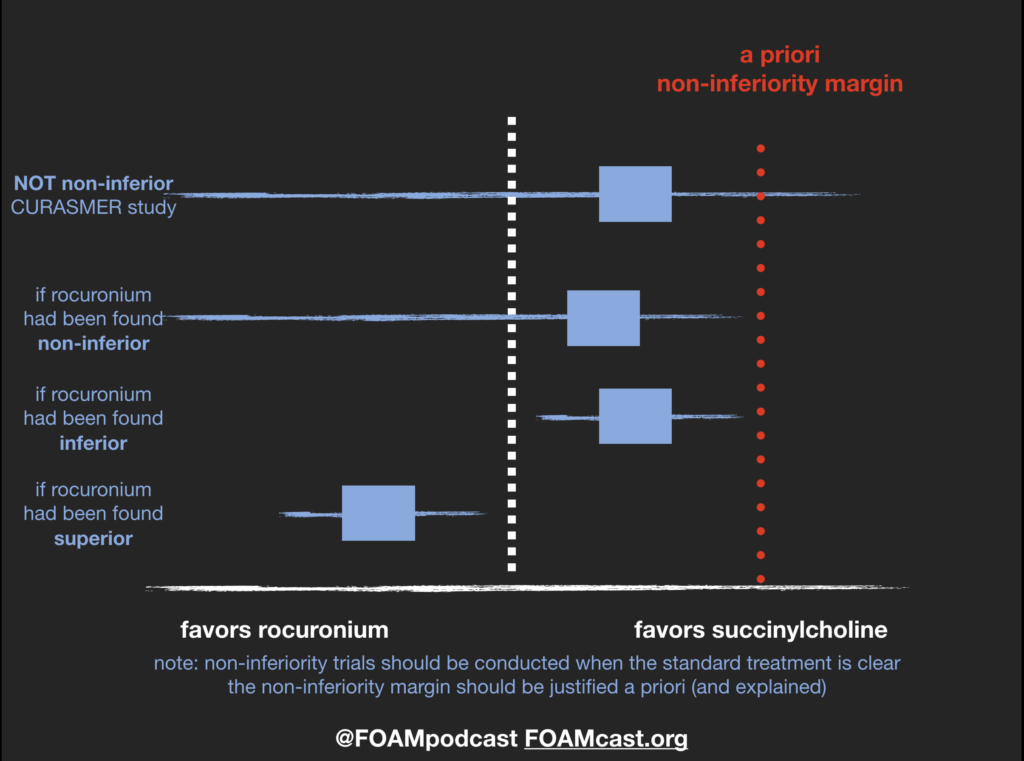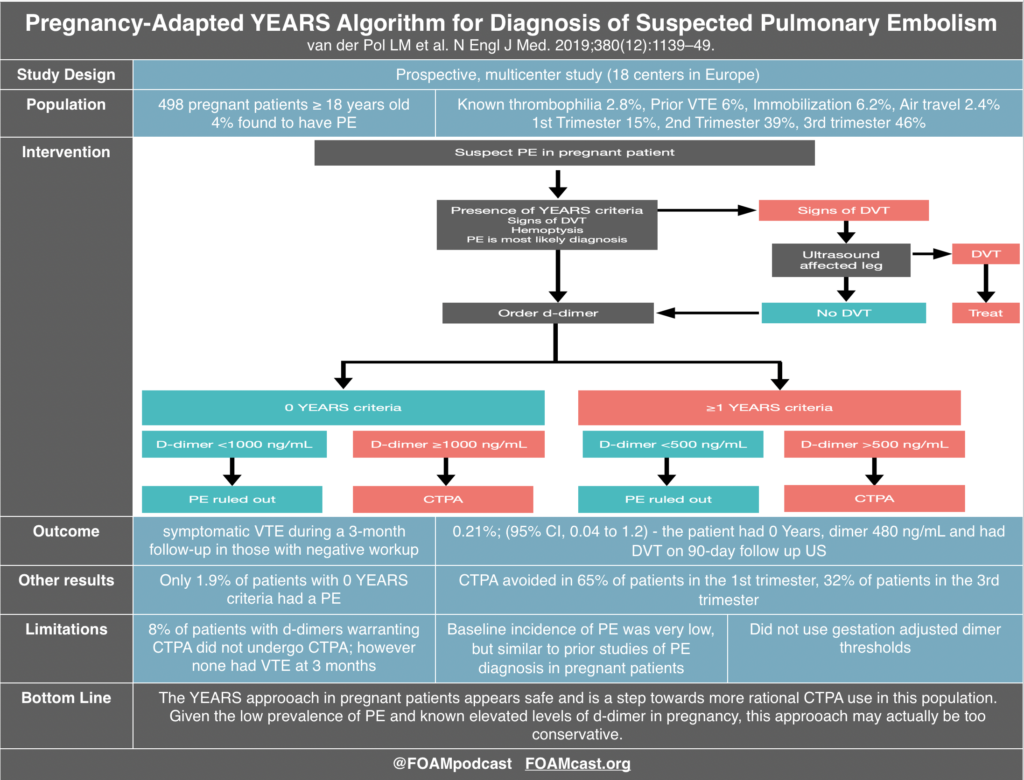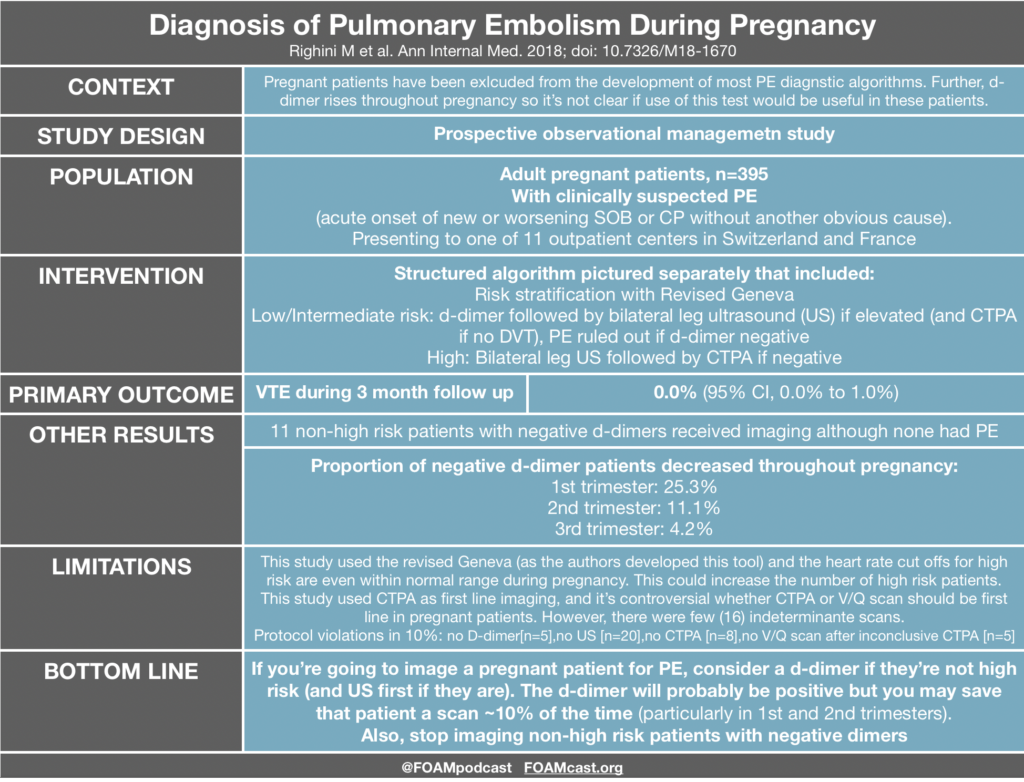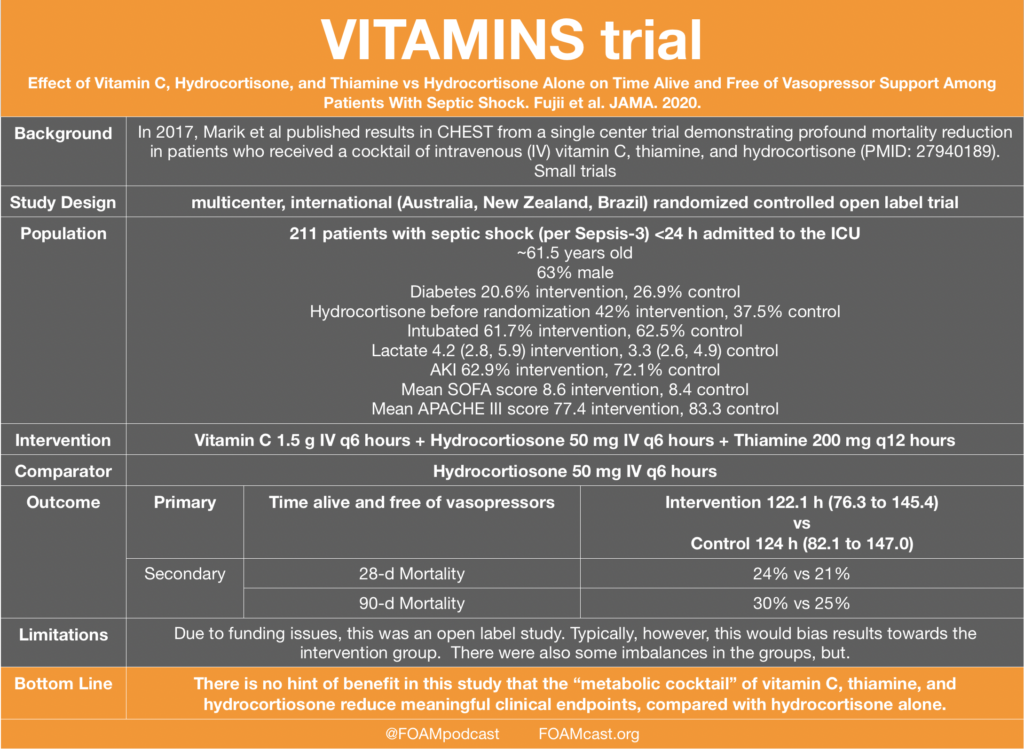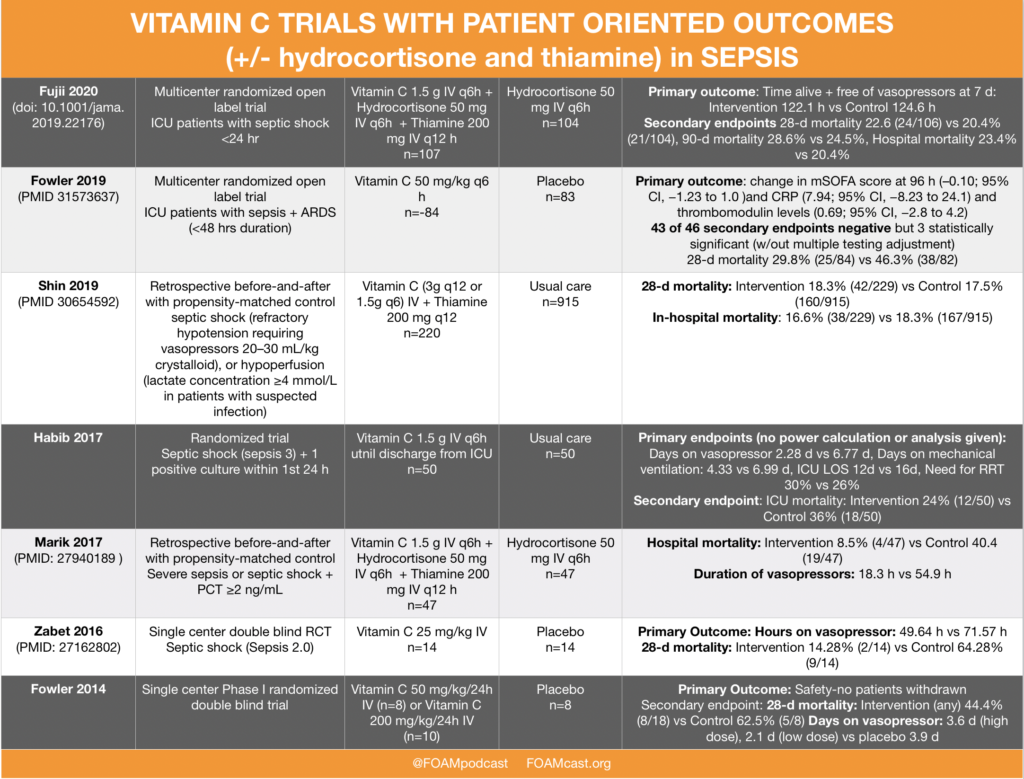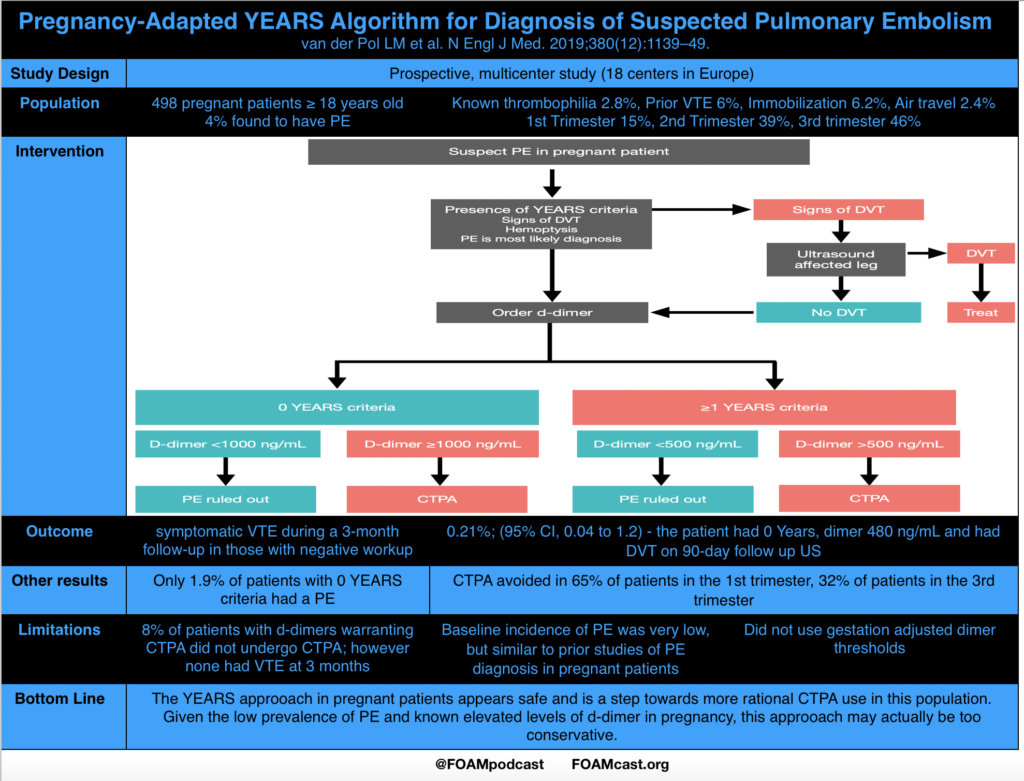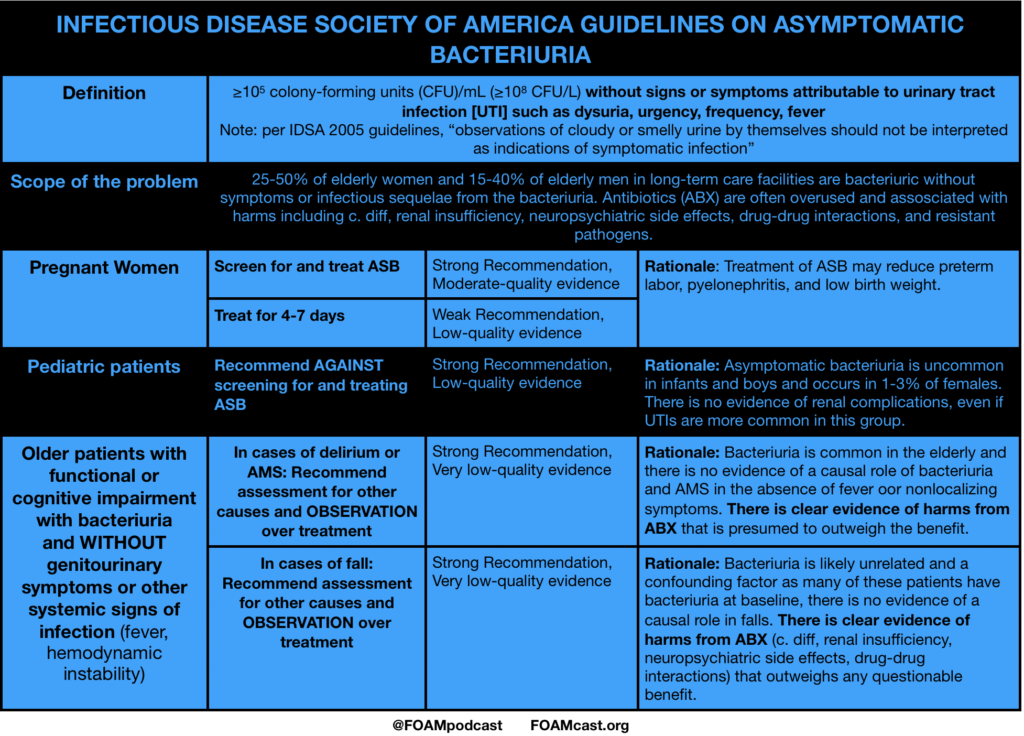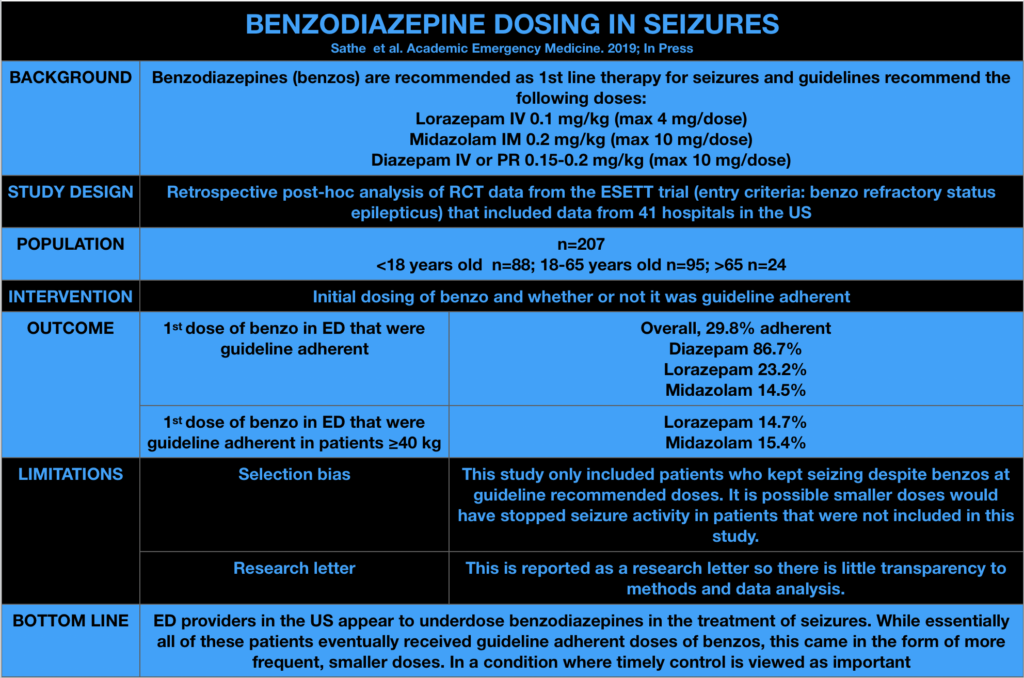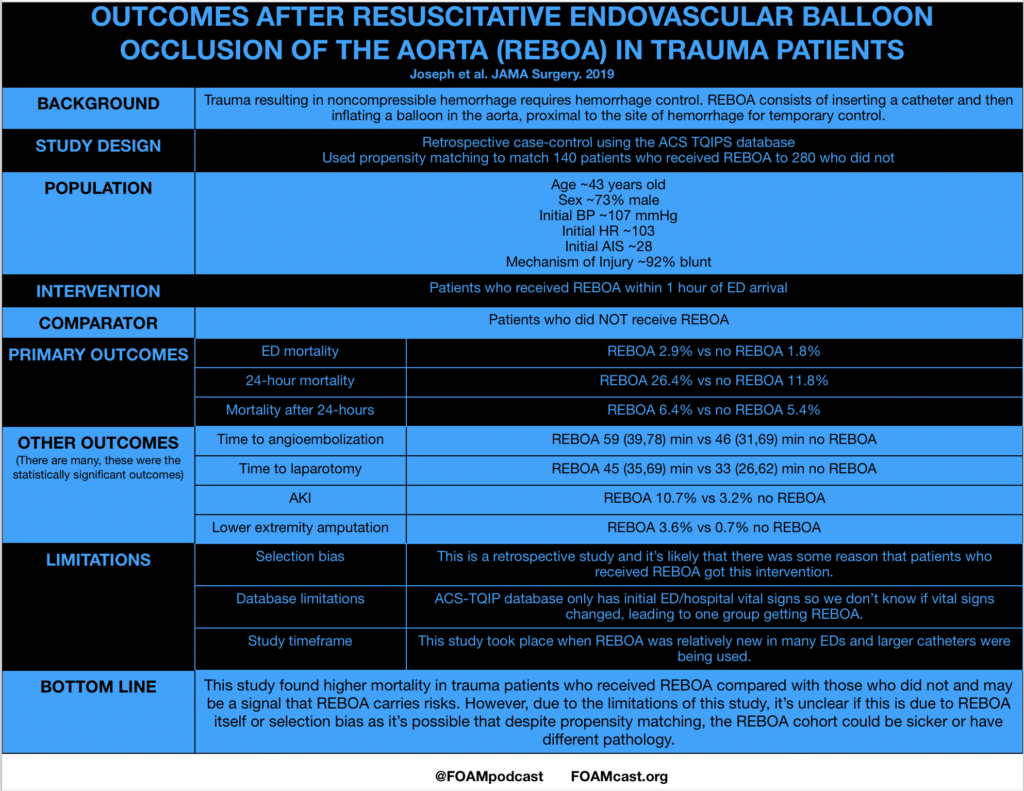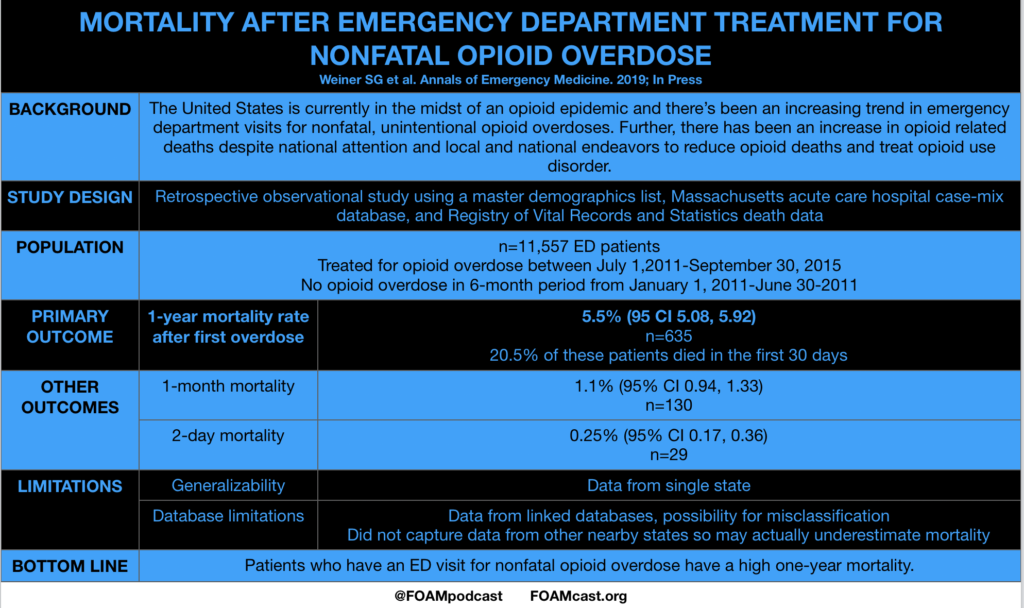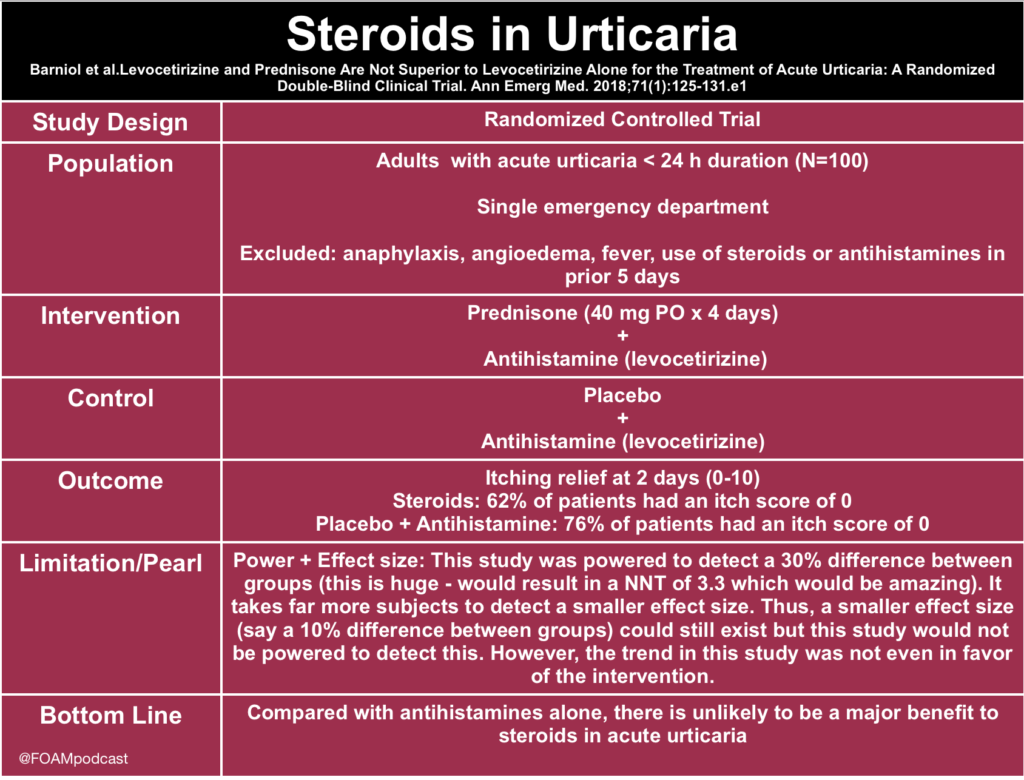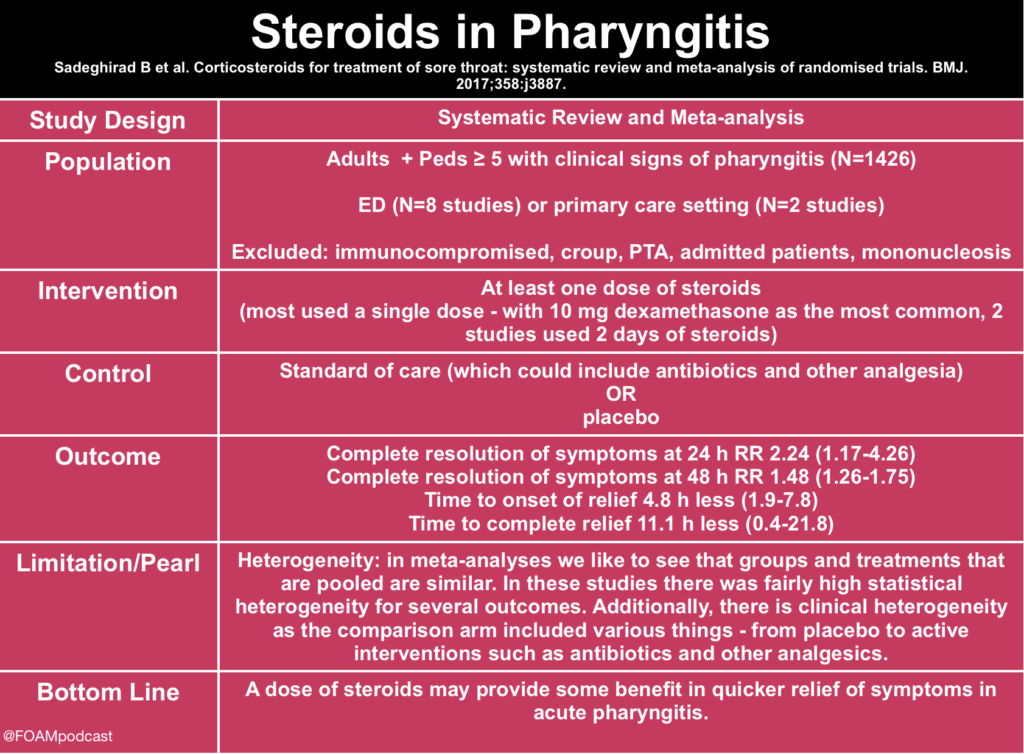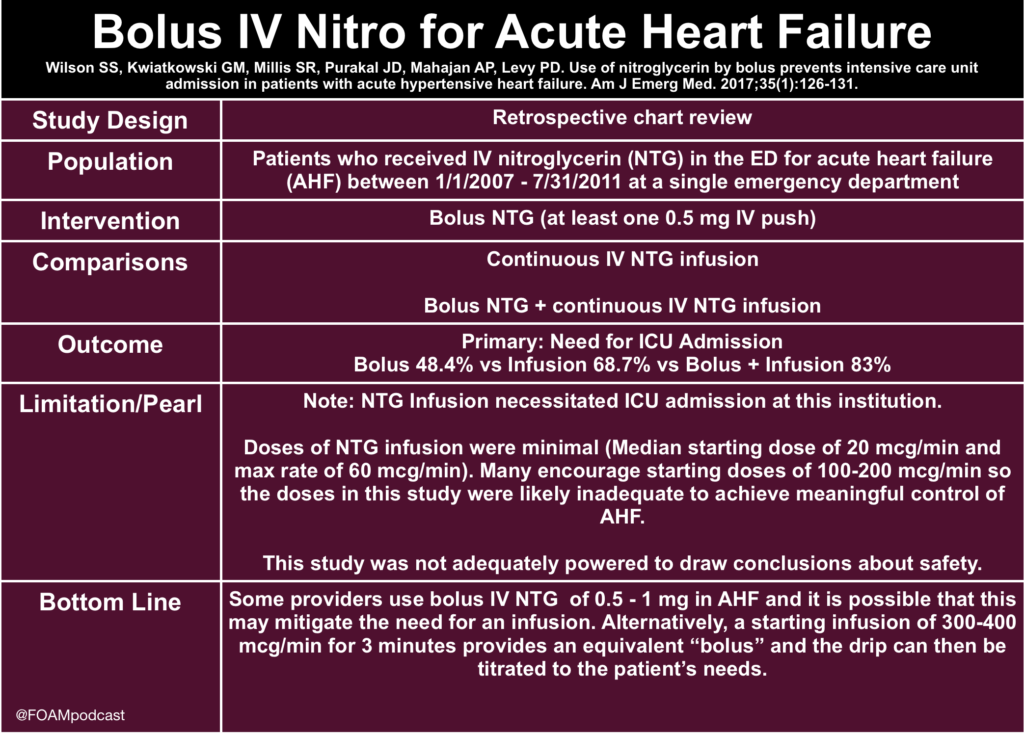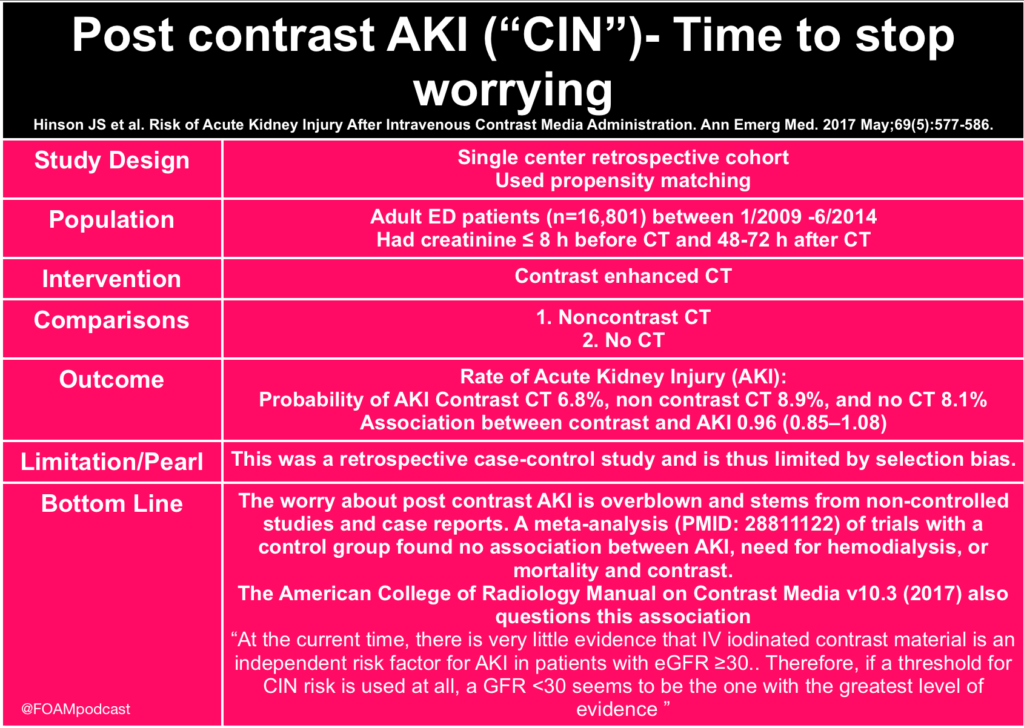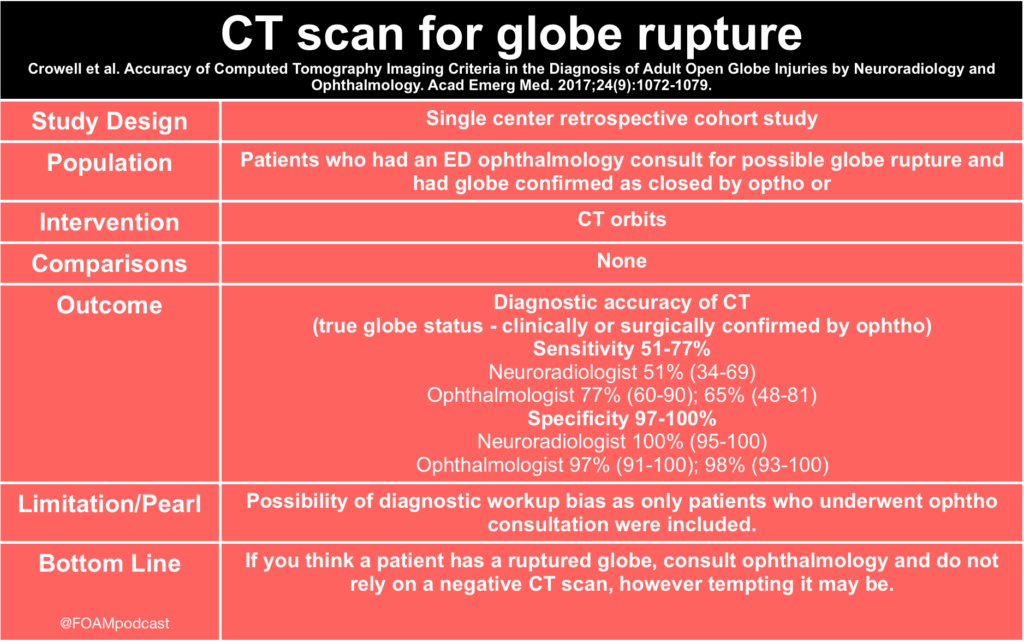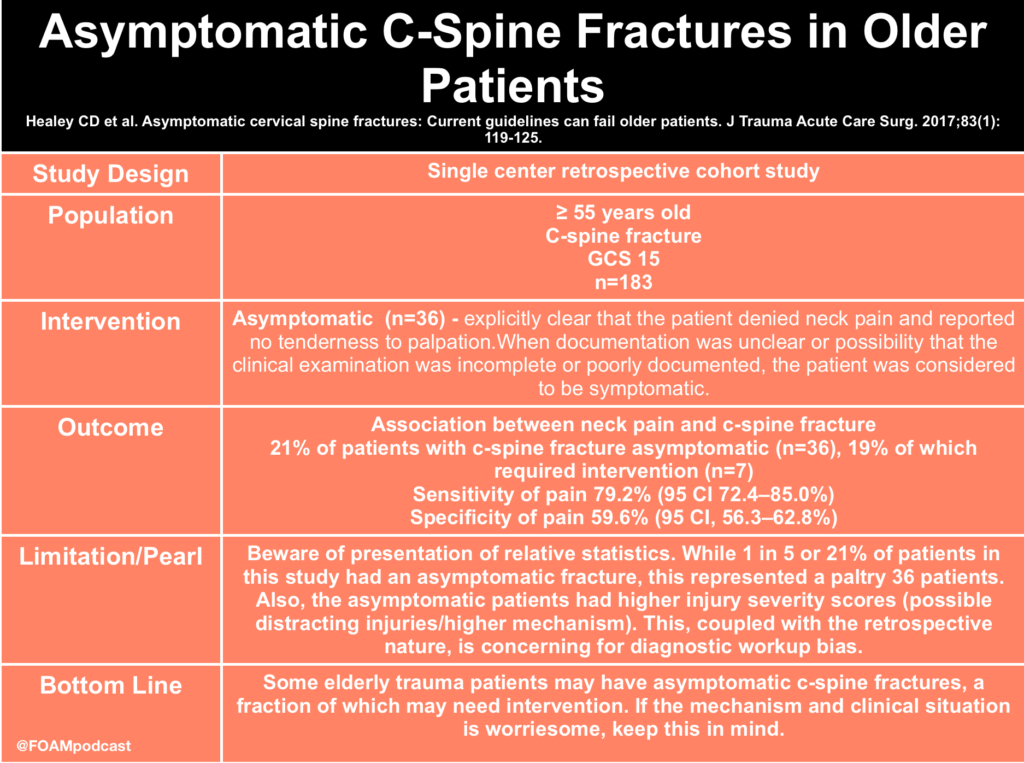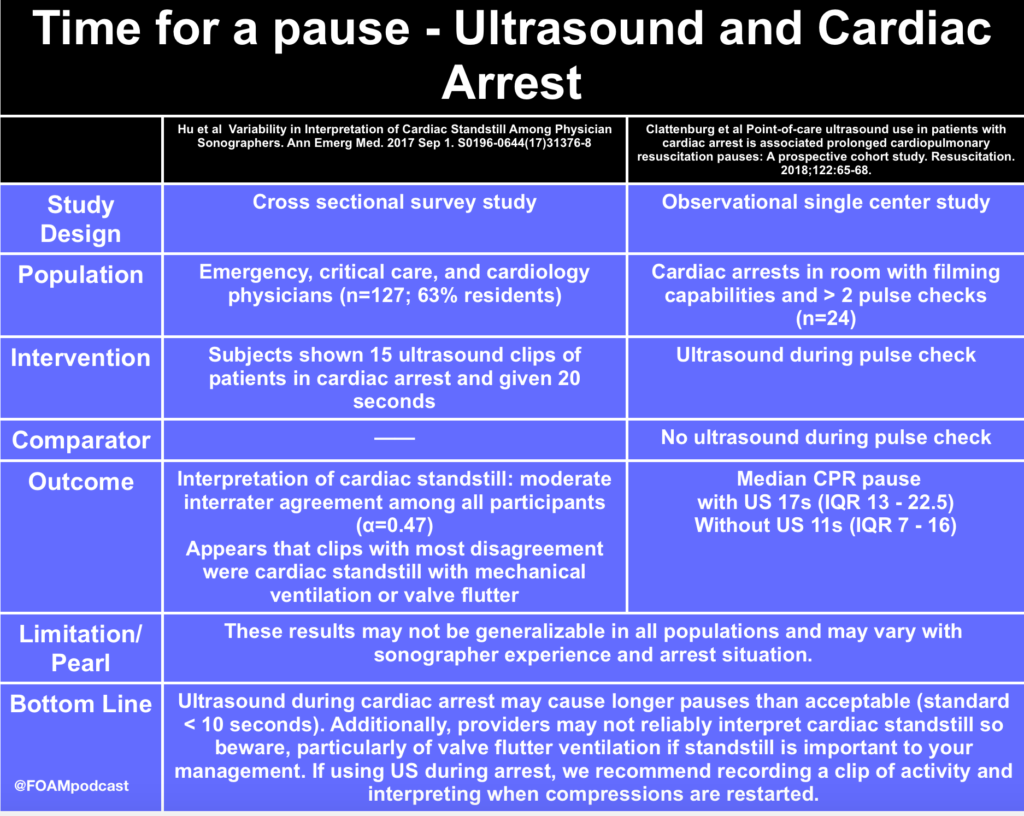In this episode, we summarize some of our favorite articles from 2019.
Roc vs Sux: Guihard B et al. Effect of rocuronium vs succinylcholine on endotracheal intubation success rate among patients undergoing out-of-hospital rapid sequence intubation: A randomized clinical trial. JAMA 2019 Dec 17; 322:2303. (https://doi.org/10.1001/jama.2019.18254)
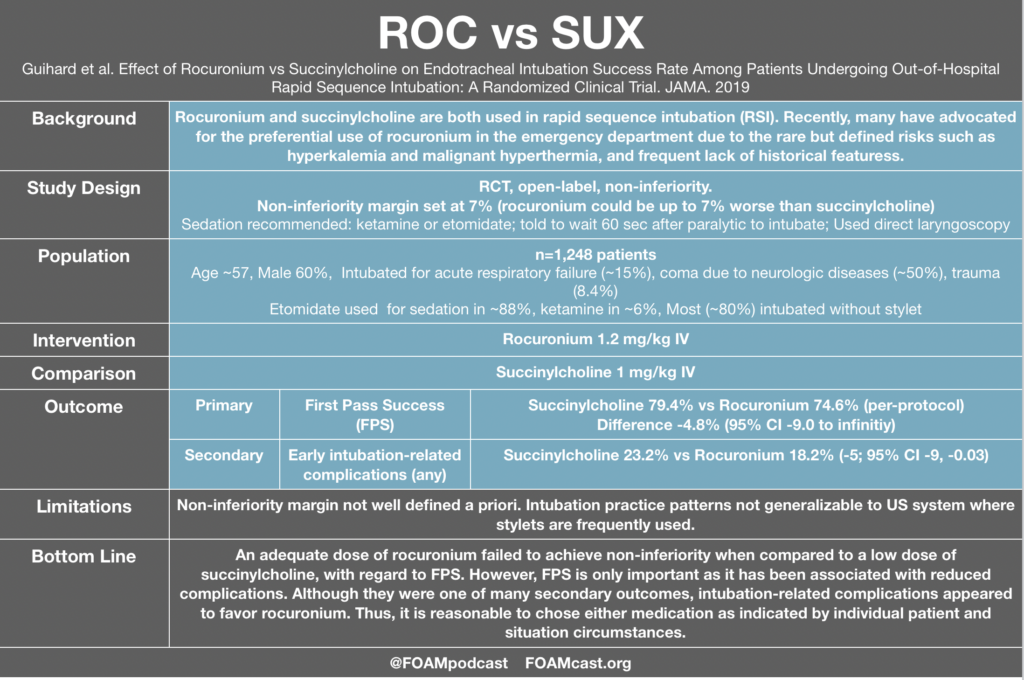
This trial may be difficult to interpret as non-inferiority trials operate under a different set of principles than typical superiority studies. An example of how the interpretation may differ had the results varied is seen below
Targeted Temperature Management after Cardiac Arrest: Lascarrou JB, Merdji H, Le gouge A, et al. Targeted Temperature Management for Cardiac Arrest with Nonshockable Rhythm. N Engl J Med. 2019.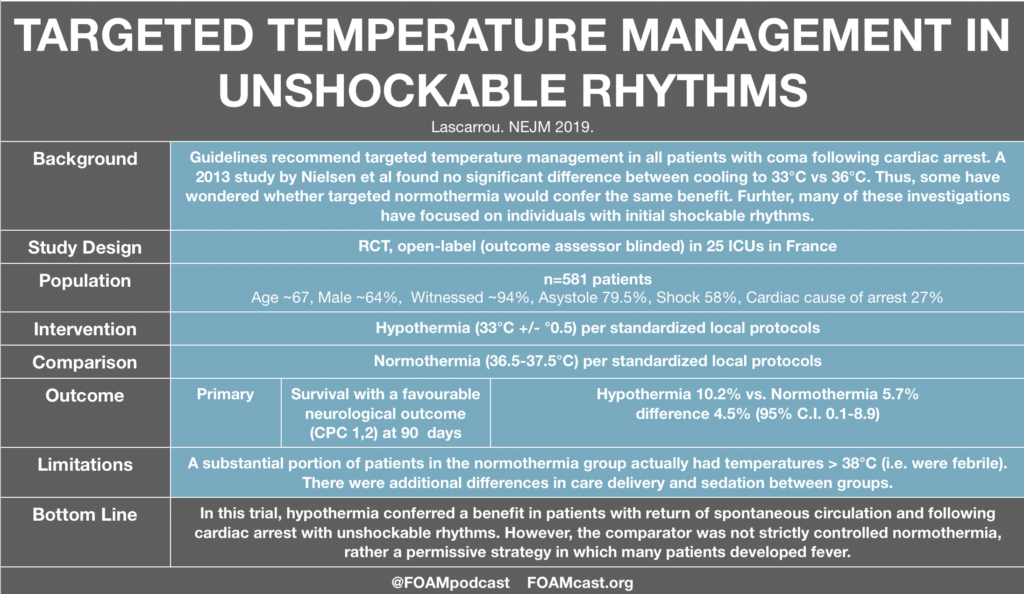
Probability Adjusted D-Dimer in the Evaluation of PE: Kearon C, De wit K, Parpia S, et al. Diagnosis of Pulmonary Embolism with d-Dimer Adjusted to Clinical Probability. N Engl J Med. 2019;381(22):2125-2134. 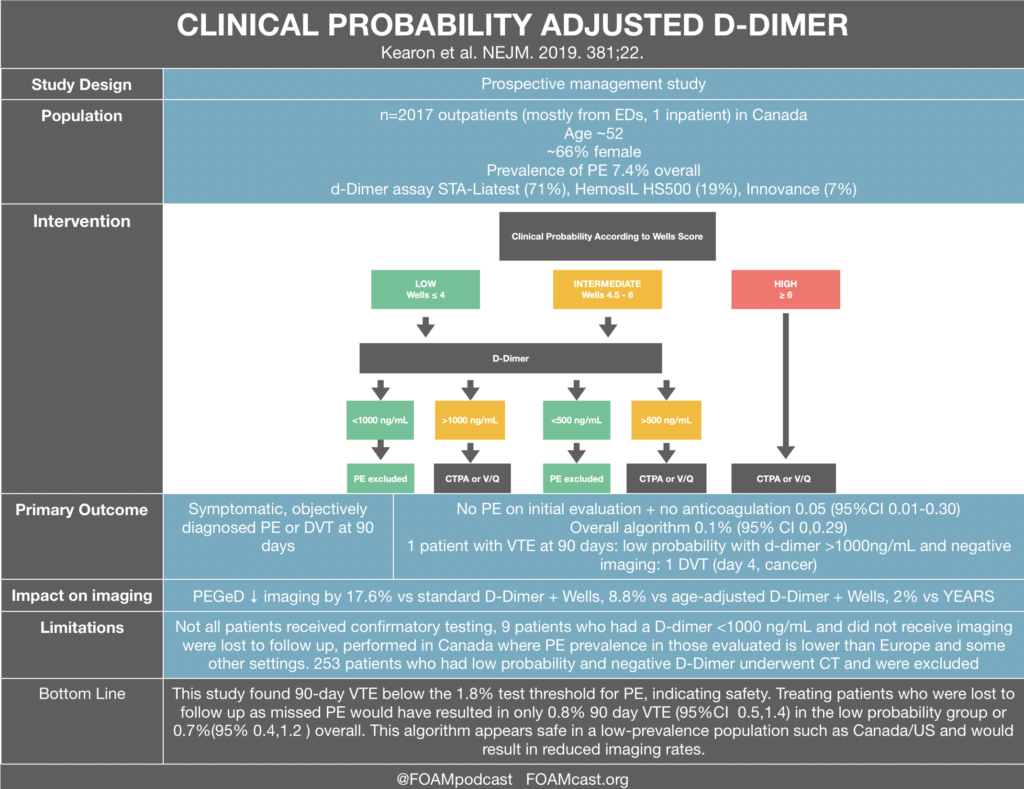 For more on this topic, see this review.
For more on this topic, see this review.
Pregnancy and Evaluation of PE van der pol LM, Tromeur C, Bistervels IM, et al. Pregnancy-Adapted YEARS Algorithm for Diagnosis of Suspected Pulmonary Embolism. N Engl J Med. 2019;380(12):1139-1149.
For more, see this review.
Additionally, Langlois E et al. retrospectively evaluated YEARS in their cohort of pregnant patients in the Righini study cohort and found a miss rate of 0%. Some have argued that the DiPEP study demonstrated that the D-dimer cannot be reliably used to exclude PE in pregnant patients (Goodacre. Diagnosis of Suspected Pulmonary Embolism in Pregnancy. Reply. N Engl J Med. 2019;380(25):e49). However, this study was significantly different. Over 60% of patients received empiric anticoagulation which may decrease the D-dimer results. Additionally, this likely reflects a different patient population (higher risk).
The CRASH-3 Trial Collaborators. Effects of Tranexamic Acid on Death, Disability, Vascular Occlusive Events and Other Morbidities in Patients with Acute Traumatic Brain Injury (CRASH-3): A Randomised, Placebo-Controlled Trial. Lancet 2019
